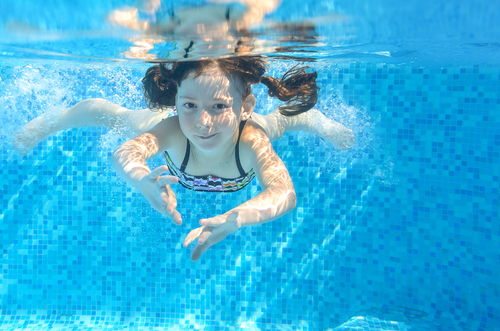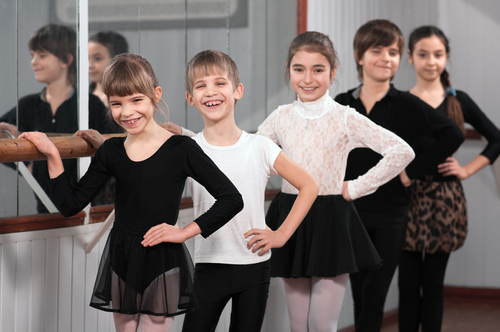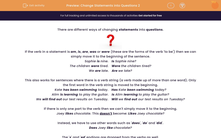There are different ways of changing statements into questions.
.jpg)
If the verb in a statement is am, is, are, was or were (these are the forms of the verb 'to be') then we can simply move it to the beginning of the sentence.
Sophie is nine. Is Sophie nine?
The children were tired. Were the children tired?
We are late. Are we late?
This also works for sentences where there is a verb string (a verb made up of more than one word). Only the first word in the verb string is moved to the beginning.
Kate has been swimming today. Has Kate been swimming today?
Alim is learning to play the guitar. Is Alim learning to play the guitar?
We will find out our test results on Tuesday. Will we find out our test results on Tuesday?

If there is only one part to the verb then we can't simply move it to the beginning.
Joey likes chocolate. This doesn't become: Likes Joey chocolate?
Instead, we have to use other words such as 'does', 'do' and 'did'.
Does Joey like chocolate?

The 's' and 'ed' endings are dropped from the verbs as well.
Lily played with her toys in the bath. Did Lily play with her toys in the bath?
We sometimes have to make other changes to the verb as well. In the following sentence 'went' changes to 'go'.
Maria went to her ballet class. Did Maria go to her ballet class?

There's a lot to get our heads around here, and the best way to do that is to try some questions!
Let's get started.







